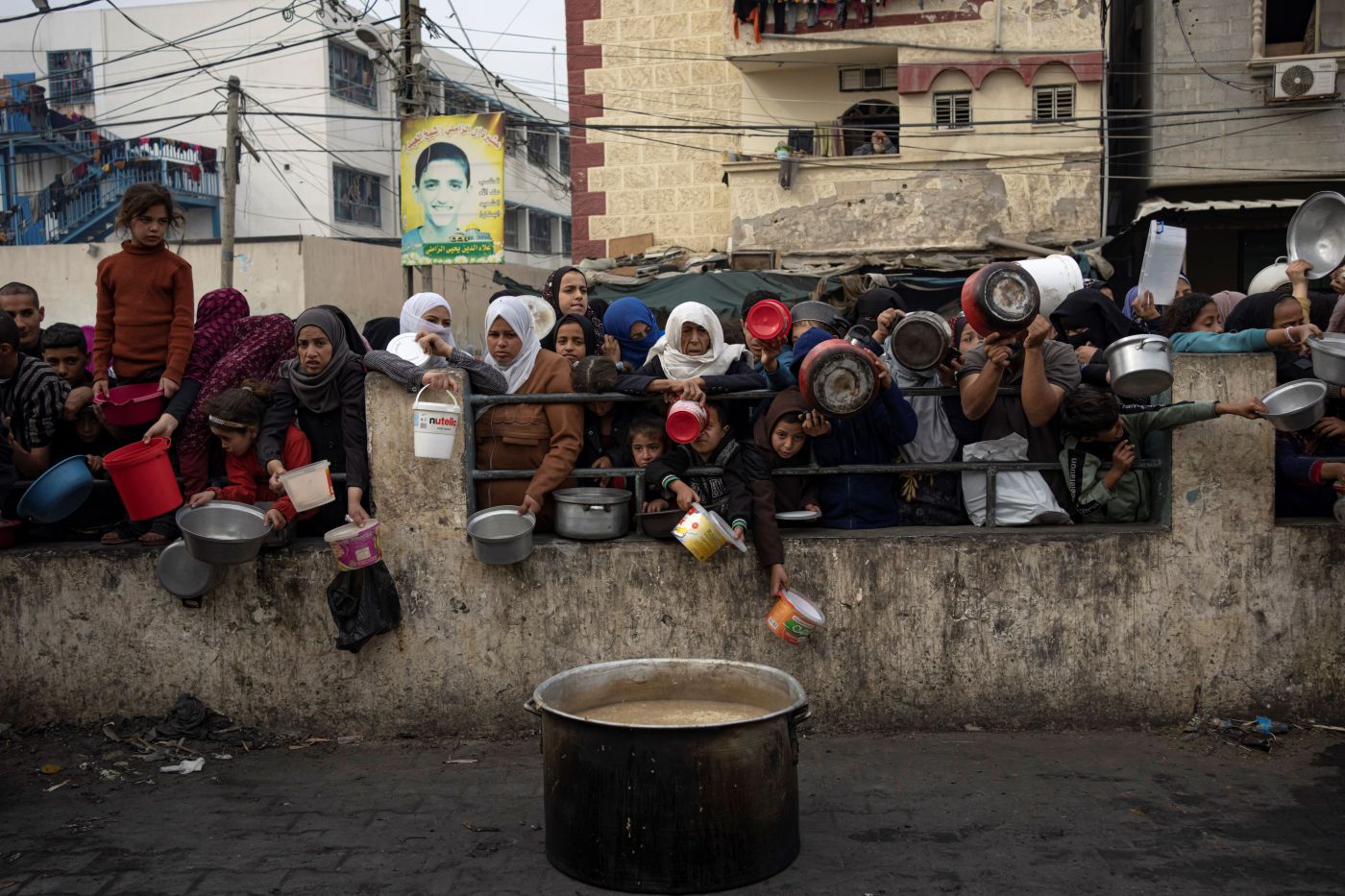
Gaskin: What about Palestinians seeking equality & peace?
Following the brutal Oct. 7 attacks by Hamas and the accompanying chants of “From the river to the sea!” and “Intifada!” some worry that the world will forget Palestinians’ legitimate complaints about discrimination.
Since Oct. 7, it’s gotten worse in Israel; the West Bank has experienced increased settler violence, and life in Gaza has become horrific. Palestinians fear their concerns will be lost in the discussion about Gaza, Hamas, and Hezbollah. Some Israeli Jews acknowledge the inequities but argue that it’s necessary for national security. This has created a negative feedback loop where discrimination fuels hatred and animosity, which further threatens national security, which leads to more discriminatory policies, and so on.
When I discussed discrimination against Palestinians with American Jews, many seemed uninformed and instead pointed to examples of equality such as the right to vote. Even this is not completely accurate as Palestinians living in the West Bank can’t vote in Israeli elections. Palestinians born in the West Bank or Gaza receive a Palestinian ID but not Israeli citizenship, so they are stateless.
Those protesting Israel in support of the Palestinians seem to conflate support for Israel with support for its government and leadership. Israel’s pre-Oct 7 nationwide protest movement against the government showed they are not the same.
Like any democracy, Israel has a range of political parties, from progressive to conservative, with Jews and Palestinians along the entire spectrum. Israel has strong anti-occupation, peace, social justice and human rights movements, and Israeli Jews in these movements advocate for Palestinian justice. Many in Israel’s pro-democracy protest movement saw the wisdom in also supporting the peace movement, as it was hard to square support for democracy with support for the occupation.
At the same time, Israel’s government includes cabinet ministers who are widely recognized as racist and have taken actions against Palestinians and the interests of peace. There are Palestinians who are pacifists and Palestinians who believe the Oct. 7 attacks were morally justified as resistance.
Among the anti-Israeli protesters, there are radicals, antisemites, critical thinkers, and some who are just going along with the crowd. Instead of protesting Israel, pro-Palestinian supporters should support groups in Israel with similar beliefs to their own. Why paint all Jews with the same broad brush, unless they are simply using the Palestinian cause to cover their antisemitism?
Those opposed to Israel’s right to exist need to realize that’s not what most surveys say Arab-Palestinian citizens of Israel want, despite being one of the most marginalized groups in Israel. While the Palestinians I met in Israel wanted equal treatment, none thought the solution was the destruction of Israel or believed Israel had no right to exist.
A famous Afro-Palestinian from Chad who lives in Jerusalem told me of his history of discriminatory treatment in Israel. However, given the opportunity to live in Switzerland, he said he wouldn’t think of leaving Israel. I also met with Christian and Muslim Palestinians in Israel and the West Bank. Some lived in Arab cities; others lived in mixed cities. They all told of daily instances of discrimination but also expressed support for their country.
The antipathy between some Israelis and Palestinians goes back decades, evidenced by numerous wars, border disputes, riots, and provocations, such as shootings at religious sites. I saw for myself the bullet holes in the mosque at the Cave of Machpelah in Hebron. The travel restrictions in areas A, B, and C that apply to Jews visiting the West Bank and Palestinians entering Israel serve as a constant reminder of the mutual mistrust. This tension has led to some holy sites being divided into Jewish and Muslim sides and others being restricted to residents of one religion or another. I found it sad and unfortunate that I, as an American, could see more of these national treasures than the locals. The separate sides look like something from America’s segregationist past.
Oct. 7 has changed many people’s thinking about everything related to Israel and its treatment of Palestinians, including the wall separating Israel from the West Bank and the boycott, divestment and sanctions movement as a strategy. Before, there was debate as to whether the wall was necessary. After all, there are few walls on the U.S. borders with Canada and Mexico or on the borders between E.U. countries. That discussion is over. The BDS movement was once seen as a peaceful, nonviolent protest strategy that some considered antisemitic. Now, more people view it as antisemitic and a threat to Israel’s security.
Before Oct 7, I never saw a Hamas flag in the West Bank. Now they are quite visible, not as the flag of terrorists, but as a sign of “successful resistance” because the Oct. 7 attacks led to the freedom of prisoners. While shocking, this is completely consistent with the thinking behind the establishment of the Palestinian Authority Martyrs Fund.
As a Black American, I recognize Black/Palestinian intersectionality and can identify with Palestinians as a minority group fighting for equal rights. But I am also sensitive to the recent rise in antisemitic hate crimes, and I appreciate the history of Jewish support for Blacks, from the founding of the NAACP to the Jews who supported the Black Lives Matter organization despite concerns about its leadership and policies being antisemitic.
As an American, I don’t want to judge Israel or the Palestinians. We have our own shameful history.
Israel is a relatively young country. It has taken the U.S. decades of legislation to make incremental progress in the treatment of Blacks. Equal treatment didn’t suddenly manifest after the end of the Civil War, the issuance of the Emancipation Proclamation, or the passage of the 13th, 14th and 15th Amendments. Despite the Civil Rights Act, the Voting Rights Act, multiple Supreme Court decisions, and antidiscrimination legislation in housing and employment, we still have significant disparities in almost every aspect of life, including education, health care and criminal justice. Some Palestinians see such incrementalism as no more than a way to make their chains more comfortable when they want to be set free.
My hope rests with the fact that organizations in Israel consisting of Jews, Arabs and others are still urgently working for peace despite the Hamas massacre and the suffering in Gaza. The mistrust between Jews and Arabs won’t disappear with a two-state solution. It will take years of hard work to reverse what has built up over the decades. Fortunately, people are willing to do the work to change hearts and minds and achieve reconciliation — people such as Archbishop Elias Chacour, an advocate of nonviolence, who calls himself a “Palestinian-Arab-Christian-Israeli.”
I believe people of faith and people of goodwill must work together for the common good and peace in the Holy Land.
Ed Gaskin is Executive Director of Greater Grove Hall Main Streets and founder of Sunday Celebrations.


